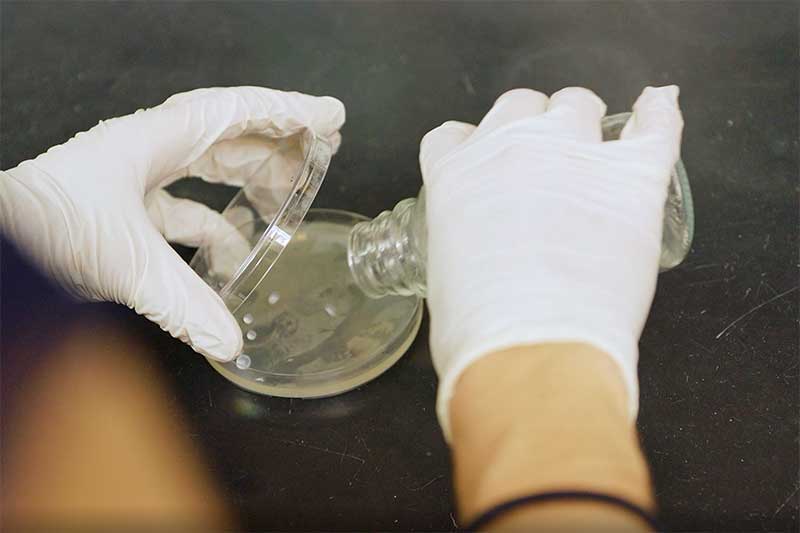Graduate Studies
Graduate studies in the Department of Chemical Engineering prepares students to solve the problems of tomorrow. Chemical engineering principles are at the heart of global challenges, from energy storage and process sustainability to pharmaceutical manufacturing and novel material production. Students have the opportunity to deepen their knowledge and skills, while gaining experience through experiential learning, cutting-edge research, and cooperative education. Full-time and part-time options are available.
Full-time students may participate in Northeastern’s top-ranked co-op program, gaining up to eight months of professional work experience. Our premier Boston location facilitates a wealth of collaborations with neighboring universities, hospitals, medical centers, and industry. The department is ranked among the top 50 graduate chemical engineering programs in the U.S. and our accomplished and interdisciplinary faculty hold numerous honors including young investigator awards and fellows of professional societies.
PhD in Chemical Engineering
Students pursuing a PhD in Chemical Engineering develop an in-depth understanding of the fundamental principles of chemical engineering and gain expertise in modern topics in the field through select elective courses. Through rich research and the educational experience, they prepare to become future leaders in engineering and science, while simultaneously promoting scholarly achievement.
The PhD in Chemical Engineering is a full-time program. In addition, our faculty participate in the interdisciplinary PhD and the industry PhD programs. Students with a BS degree interested in doctoral studies may apply directly to the PhD program or pursue the MS degree first and then apply to the PhD subsequently.
The Graduate Dissertation Completion Fellowships provides PhD candidates who are nearing completion of their dissertation the financial support to spend their final semester writing.
Master of Science Degrees
With the MS in Chemical Engineering, students select from three concentrations to align with their career interests. Pursue research with the General Principles and Applications concentration to prepare to continue studies toward a PhD, or dive into topical systems applications in industry with either the Biosystems or Sustainability concentrations, which are course-based. Additionally, a common computational-based core curriculum gives students important real-world mathematical tools. Non-thesis concentrations are offered full-time and part-time.
The MS in Pharmaceutical Engineering provides integrated coursework in upstream and downstream processing to meet the evolving and growing needs of the biotechnology and biomanufacturing industries. Offered in coordination with Bouvé College of Health Sciences, students must have sufficient mathematics background to pursue an engineering degree. This full-time program with coursework and rich experiential learning prepares students for bioprocessing and manufacturing for biopharma.
Research Areas
The department’s research areas include Biomolecular and Biomedical Systems; Complex and Computational Systems; Energy and Sustainability; Engineering Education and Pedagogy; and Materials and Nanotechnology. Full-time thesis-based graduate students are able to select thesis topics from a diverse range of faculty research interests.
Cooperative Education
Northeastern is a leader in experiential learning and is one of only a few that offer a cooperative education program for graduate students. Cooperative education at the graduate level is not just a way for students to gain real world experience, but it is also a way to challenge, network, expand and fine-tune their knowledge within their respective industry, and foster career development, while helping to finance their education.
Located in Hub of Innovation
With a premier location in downtown Boston, a hub of high tech, biotech, and medical and pharmaceutical institutions, including world-renowned hospitals, research in the department leverages the wealth of collaborations with neighboring universities, hospitals, medical centers and industry.
